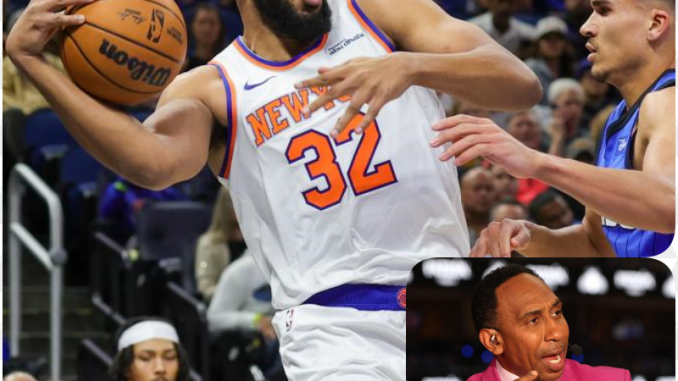
Karl-Anthony Towns has long been considered one of the most talented big men in the NBA. His combination of size, skill, and shooting ability has made him a unique asset for the Minnesota Timberwolves. However, despite his elite offensive game, Towns continues to struggle with an issue that has plagued him for years: foul trouble.
For a player of Towns’ stature—standing at 7 feet tall and possessing a versatile skill set—staying on the court is paramount. Yet, his propensity to rack up fouls at an alarming rate has been a consistent issue throughout his career. In fact, it seems as though this particular flaw has been exacerbated in recent seasons. Whether it’s his tendency to engage in physical battles under the basket or his sometimes reckless attempts to contest shots, the fouls continue to mount. This ongoing issue not only limits his impact on the game but also hinders the Timberwolves’ ability to compete at the highest level.
A Persistent Pattern
Towns’ foul trouble has become a familiar sight. He averages around 4.1 fouls per game this season, a figure that places him among the league leaders in fouls committed. While this may not sound catastrophic at first glance, it’s worth considering the ripple effect it creates. Foul trouble often leads to reduced playing time, meaning Towns is forced to sit on the bench for extended periods—either to avoid fouling out or to prevent his next foul from becoming a crucial one late in the game.
This, in turn, affects not only his scoring and rebounding numbers but also the overall defensive cohesion of the Timberwolves. When Towns is not on the floor, Minnesota lacks a dominant presence in the paint, which can expose them to easy scoring opportunities from their opponents.
Stephen A. Smith’s Perspective
The foul trouble surrounding Karl-Anthony Towns has not escaped the scrutiny of NBA analysts and commentators, including Stephen A. Smith, ESPN’s outspoken pundit. Smith, known for his fiery takes and candid opinions, has voiced his concerns about Towns’ consistency and discipline on numerous occasions.
On a recent episode of First Take, Smith made it clear that he believes Towns’ foul problems are more than just a minor hindrance—they represent a serious flaw in his game. “Listen, we’re talking about a guy who’s supposed to be one of the best big men in the league, but he can’t stay on the floor,” Smith remarked. “You can’t help your team if you’re constantly in foul trouble. And it’s not like he’s the only big man in the league who gets physical. But there’s a difference between being aggressive and being reckless.”
Smith’s comments bring attention to the heart of the issue: Towns sometimes lacks the discipline to balance aggression with control. While many view his aggressive nature as a positive trait, especially on the offensive end, it often crosses over into overzealousness on defense. His decision-making, particularly when contesting shots or trying to block opponents at the rim, frequently leads to unnecessary fouls.
What This Means for the Timberwolves
The Timberwolves’ hopes of becoming a true contender in the Western Conference are undeniably tied to Towns’ development. He’s the centerpiece of their frontcourt, and his ability to dominate both ends of the floor is essential for Minnesota’s success. However, his inability to stay on the court for extended stretches due to foul trouble may prevent the Timberwolves from reaching their full potential.
Minnesota has a talented roster, including rising star Anthony Edwards and veteran point guard Mike Conley, but they need Towns to be a consistent, available presence for the team to compete at the highest level. Coach Chris Finch has consistently emphasized the importance of Towns staying engaged while maintaining his composure, but it remains a work in progress.
For Towns, the path to improvement involves both a mental and physical adjustment. He must learn to manage his aggression in ways that don’t result in unnecessary fouls. One key area for growth is his timing when contesting shots. Often, Towns gets caught reaching in or overcommitting on defensive plays, leading to fouls. Developing a more measured approach to shot-blocking and switching on defense could reduce his tendency to pick up quick fouls.
Another element of his game that needs refinement is his positioning. Towns can be overly aggressive in trying to win battles for position, which leads to offensive fouls and putbacks that put his team at a disadvantage. If Towns can become more disciplined in these areas, he can remain on the floor longer and avoid putting his team in difficult situations.
Karl-Anthony Towns’ foul-trouble issues are more than just a statistic; they represent a major roadblock to his career progression and the Timberwolves’ championship aspirations. The pattern has been persistent, and it’s clear that he needs to adjust his game to minimize this weakness. While Towns’ skills remain undeniable, it’s now up to him to learn how to harness his aggression in ways that make him an even more dominant force. Stephen A. Smith’s critiques may sting, but they come from a place of high expectations—a reminder that Towns has the potential to be so much more if he can just stay on the floor when it matters most.
For the Timberwolves, the hope is that Towns will address these issues before they become a defining characteristic of his career.
Leave a Reply